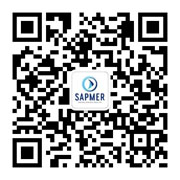The seriousness and rigor of SAPMER’s teams have been recognized by many certification, such as the MSC, Friend of the Sea, and Dolphin Safe. These stand as surety of its commitment to sustainable fisheries. Through concrete actions, SAPMER vows to preserve the marine ecosystems and work towards the protection of the environment.
Certifications; proof of
sustainable fisheries
Actions taken by SAPMER for responsible fishing are recognized by the obtention of certifications attesting good fishing practices. The MSC certification (Marine stewardship council), obtained in 2013, is an Eco label recognizing the sustainability of the Patagonian Toothfish fishing in the vicinity of the Kerguelen Islands. Via a stringent set of terms and conditions, the MSC certification ensures the preservation of this resource, the respect of ecosystems and the efficiency of the fisheries management system.
The Friend of the Sea, certification program, which contributes to the preservation of the oceans by evaluating and promoting sustainable fishing practices, recognizes that, since 2012, SAPMER meets all the requirements with regard to sustainable development in the context of its activities related to tuna fishing. Friend of the sea certifies that the entire production chain (on board vessels and at the heart of the tuna valorization plant) meets the requirements insofar as the following criteria are concerned: quality, security and social rights of employees, food hygiene, traceability standards and compliance with environmental requirements.
The SAPMER fleet is also registered on the ISSF’s Proactive Vessel Register (PVR ISSF) and on the Register of Vessels engaged in Other Sustainability Initiatives (VOSI ISSF) to ensure the sustainability of resources and the protection of marine ecosystems. These registers allow everyone to check the compliance of SAPMER vessels with applicable conservation measures and committed to continuous improvement.
In June 2016, SAPMER obtained the Fad Free certification which makes it possible to identify and guarantee the traceability of tuna catches made on shoals. The use of Fish Concentration Devices (FADs) is done under the conservation measures of the Indian Ocean Tuna Commission (IOTC), our producer organization (ORTHONGEL) and International Seafood Sustainability Foundation (ISSF). It is translated into an internal policy of exclusive deployment of non-entangling FADs.
Dolphin safe: the absolute protection
of marine mammals
Since 2011, SAPMER adheres to the Dolphin Safe (dolphin-friendly) program supported by the Earth Island Institute international organization, which aims to protect dolphins during fishing activities in the Indian Ocean. This label guarantees selective fishing, thereby safeguarding marine mammals and also limiting unwanted by-catches of any untargeted species. SAPMER’s vessels may be checked at any time and without prior warning by the Earth Island Institute teams in order to ensure that the Dolphin safe requirements are strictly respected.
Since the beginning of our tuna operations, we have developed a strict policy aimed at maximizing the survival of shark species that could be accidentally caught during fishing operations. This policy of good practice is accompanied by an absolute ban of Shark Finning. The implementation of this program is ensured by tools and protocols grouped in a guide of good practices and is verified by independent observers of the Groupe Bureau Veritas systematically shipped on our vessels during fishing campaigns within the framework of the OCUP “Observateur Commun Universel Permanent”. (common unique permanent observer)
Safeguarding the ecosystems: A priority
The French Southern and Antarctic Territories represent an incredible ecosystem that must be preserved. Everyday SAPMER commits itself to the preservation of this zone by practicing sustainable fishing, which protects many species. Thus, during their Patagonian Toothfish campaigns, teams change their fishing zones therefore that a certain amount of non-target species is captured, in order to protect vulnerable marine ecosystems such as coral, sponges and algae.A sound waste management approach is also adopted, with no waste incineration being effected on board so as to avoid any discharge of pollutants in the fishing zones. The ‘Zero waste’ objective aims at curtailing the impact of SAPMER’s teams on these natural maritime zones as much as possible.



